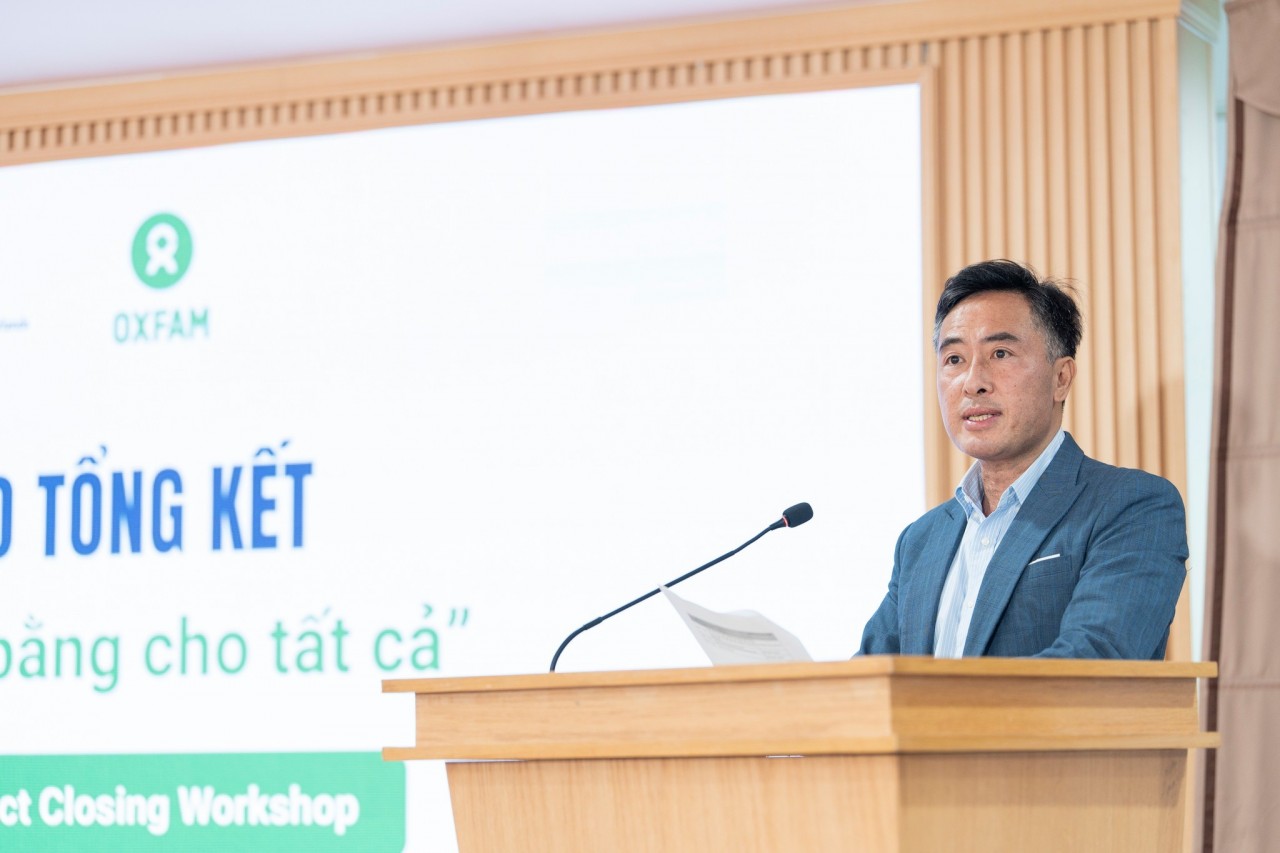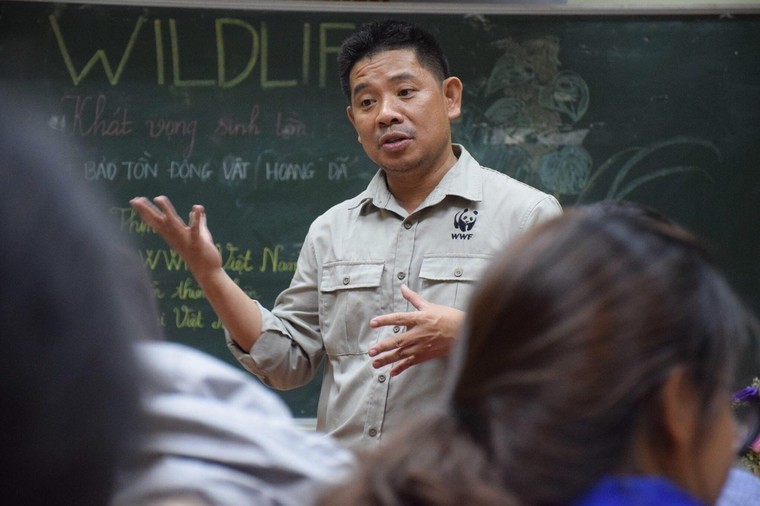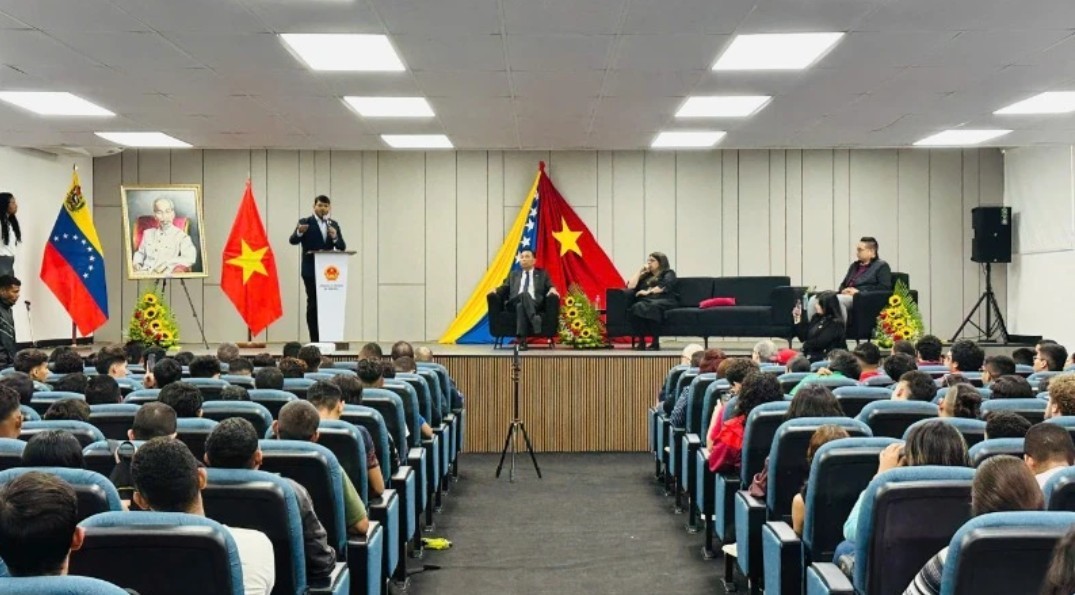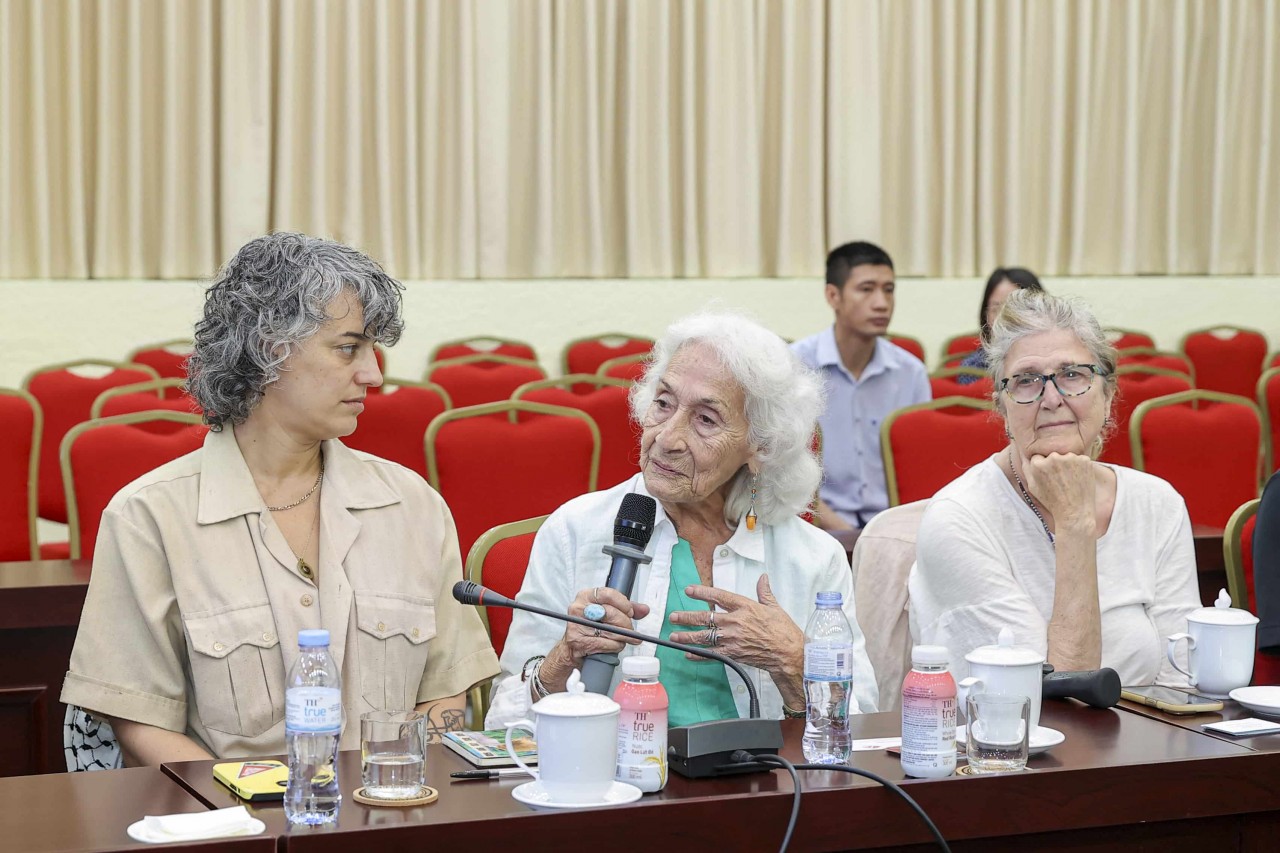50 Years of National Reunification: Vietnam’s Spectacular Transformation
| Vietnam's Remarkable Development Left Strong Impression on International Friends | |
| Letters That Carried Nation’s Destiny |
Inspiring Peoples Who Love Peace
In an interview with the Vietnam News Agency (VNA), Dr. Alisher Mukhamedov, President of the Uzbekistan-Vietnam Friendship Association, recalled clearly the day of April 30, 1975, when Uzbek television reported Vietnam’s victory, marking the end of a 30-year struggle for independence, freedom, and national reunification.
Dr. Alisher shared that his father, Rustam Mukhamedov, the youngest member of the Soviet Union’s Office of the Prosecutor delegation to Vietnam in 1963, had the honor of meeting President Ho Chi Minh. During a conversation with the delegation, President Ho Chi Minh expressed his vision that when the war ended, the Vietnamese people would build a just and prosperous society, a dream he deeply cherished.
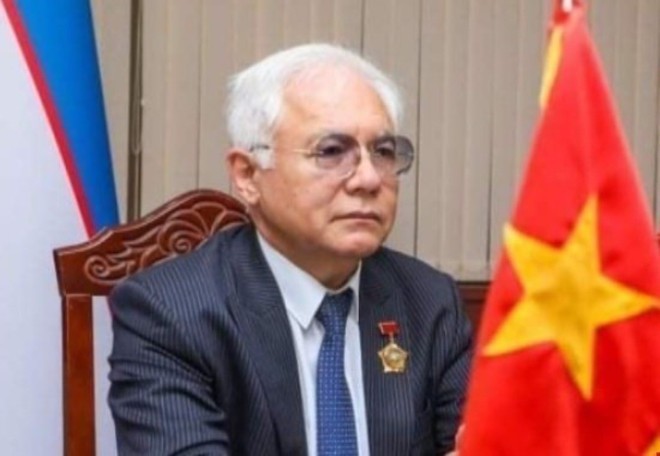 |
| Dr. Alisher Rustamovich Mukhamedov, President of the Uzbekistan-Vietnam Friendship Association. (Photo: VNA) |
According to Dr. Alisher, Vietnam’s victory served as a shining example for peace, independence, and progressive movements across the world, inspiring numerous nations.
Vietnam’s post-1975 development once again became a model of success, reflecting the brilliant leadership of the Communist Party and the country's commitment to self-reliance, combined with a skillful and flexible foreign policy.
Today, Vietnam is one of the world’s most dynamic developing countries, actively participating in international organizations, including the United Nations, the Association of Southeast Asian Nations (ASEAN), the Asia-Europe Meeting (ASEM), and the Asia-Pacific Economic Cooperation (APEC).
Dr. Alisher emphasized that after 50 years of national reunification, Vietnam has undergone a “spectacular transformation”. The economic and political reforms initiated in 1986 under the Doi moi (Renewal) policy served as a powerful catalyst, propelling Vietnam to achieve impressive GDP growth rates.
He stressed that Vietnam’s balanced domestic and foreign policies have made it a safe and attractive destination for multinational corporations. Furthermore, its favorable geographic location and developing export infrastructure provide Vietnam with strategic advantages.
However, for more sustainable development, Dr. Alisher noted that Vietnam should invest in training a high-quality workforce with a strong grasp of scientific and technological advancements, key drivers of future growth.
From Ashes of War to Economic Miracle
Claudio De Negri, Secretary of the Communist Party of Chile Central Committee and head of its Commission for External Relations, and former Ambassador of Chile to Vietnam, affirmed that Vietnam’s miraculous recovery after the war is one of the most admirable success stories in the modern world.
According to him, in the mid-1980s, Vietnam was one of the world’s poorest countries, bearing the severe consequences of war and colonialism. At that time, its GDP per capita was merely around US$ 100-200 per year, with over 70% of the population living below the poverty line.
However, with the launch of the Renewal reforms in 1986, Vietnam turned a new page. Rising from the 70th position in rice production, Vietnam rapidly became one of the world’s leading rice exporters. By 2020, GDP per capita had climbed to around US$ 2,800, and the extreme poverty rate had fallen below 2%.
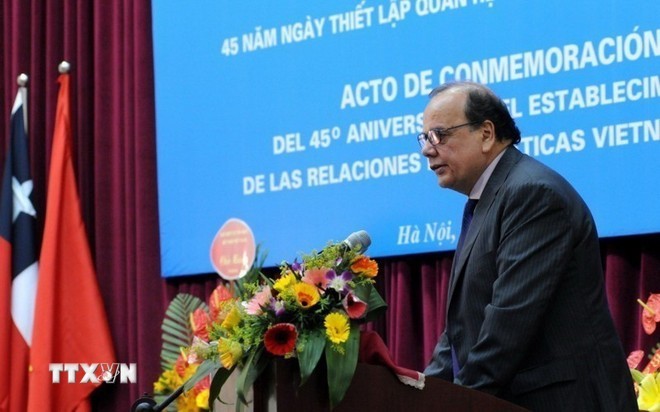 |
| Secretary of the Communist Party of Chile Central Committee and head of its Commission for External Relations Claudio De Negri spoke at an event in Hanoi during his tenure as Chile’s Ambassador to Vietnam. (Photo: VNA) |
Negri emphasized that Vietnam has consistently maintained an economic growth rate higher than the global average for many years. Significant investments in education and infrastructure are propelling the country swiftly towards its goal of industrialization.
Today, Vietnam ranks among the world’s leading exporters of electronics and textiles, drawing the strategic presence of multinational corporations such as Samsung, Intel, and LG.
He particularly highlighted the strength of Vietnam’s internal unity: its national solidarity, alongside its international strength, built upon the foundations of friendship and solidarity with nations like Chile.
Balance Between Growth and Stability
Speaking to Nhan Dan newspaper, Ambassador of the Islamic Republic of Iran to Vietnam Ali Akbar Nazari affirmed that the victory on April 30 held historic significance not only for Vietnam but also resonated globally. He noted that Vietnam’s socio-economic development after reunification has become an exemplary model for many developing countries.
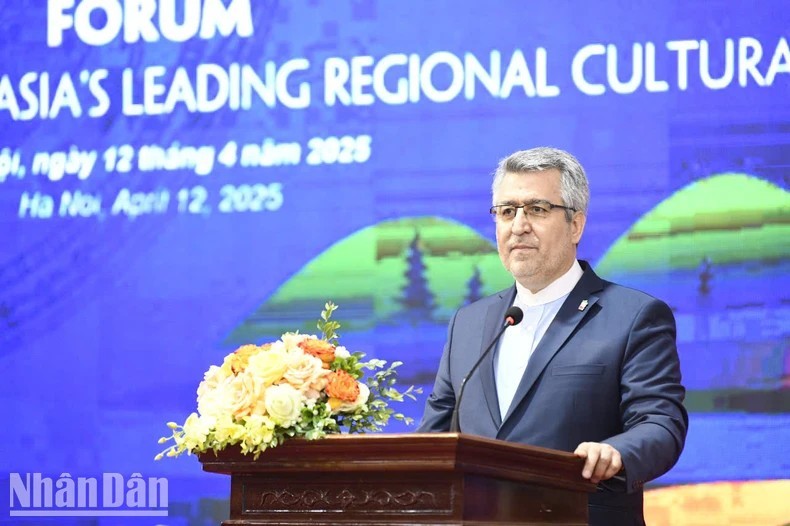 |
| Ambassador of the Islamic Republic of Iran to Vietnam Ali Akbar Nazari spoke at the tourism promotion forum “Ha Giang - A Leading Cultural Destination in Asia” on April 12, 2025. (Photo: Nhan Dan Newspaper) |
Ambassador Nazari expressed admiration for Vietnam’s journey rising from the ashes of war, overcoming harsh embargoes and international political isolation. He said that Vietnam’s courage, perseverance, self-reliance, and dynamism enabled profound transformations, particularly through the Renewal reforms of 1986.
He noted that economic reforms have paved the way for the robust development of the private sector, attracted foreign investment, promoted trade liberalization, and facilitated global integration. Vietnam’s investment attraction strategies and institutional economic reforms have enabled the country to achieve stable growth, significantly reduce poverty rates, and advance rapidly toward industrialization.
Ambassador Nazari praised Vietnam’s economic development model - a harmonious combination of state leadership and market mechanisms without rigidly copying models from the West. He emphasized that this approach offers valuable lessons for other developing countries, including Iran.
He particularly highlighted the crucial role of Vietnam’s independent, self-reliant, and flexible foreign policy in balancing international relations and safeguarding national interests. This has allowed Vietnam to maintain political stability, foster economic growth, and enhance its international standing.
According to Ambassador Nazari, Vietnam is on the right path by focusing on innovation, digital transformation, and sustainable development, thereby continuing to strengthen its role in the global economy in the coming decades.
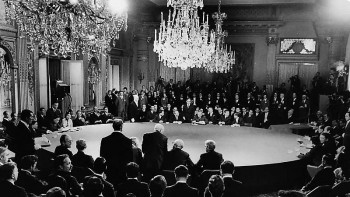 | Vietnamese Diplomacy’s Contribution to the Liberation of the South and National Reunification – Enduring Historical Lessons Fifty years ago, the great Spring Victory of 1975 brought an end to a prolonged resistance war, achieving the complete liberation of the South and ... |
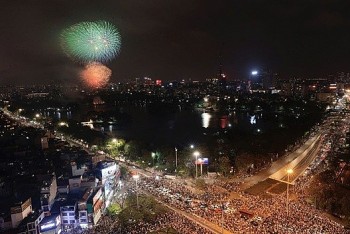 | In pictures: Fireworks Display in Hanoi Celebrates national reunification day General Secretary To Lam met with visiting Japanese Prime Minister Ishiba Shigeru, who is also President of the Liberal Democratic Party of Japan, at the ... |
Recommended
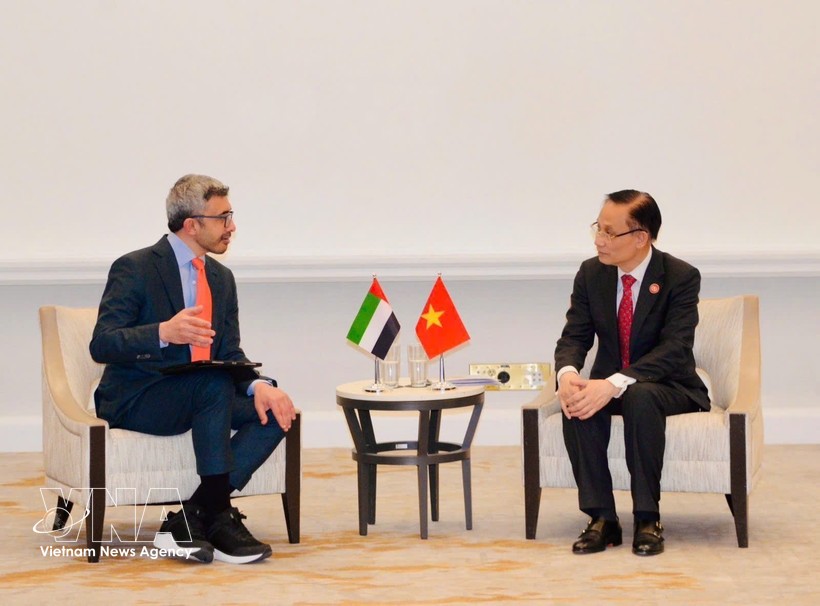 National
National
Vietnam News Today (Feb. 22): Vietnamese FM Meets Counterparts of UAE, Egypt and Türkiye
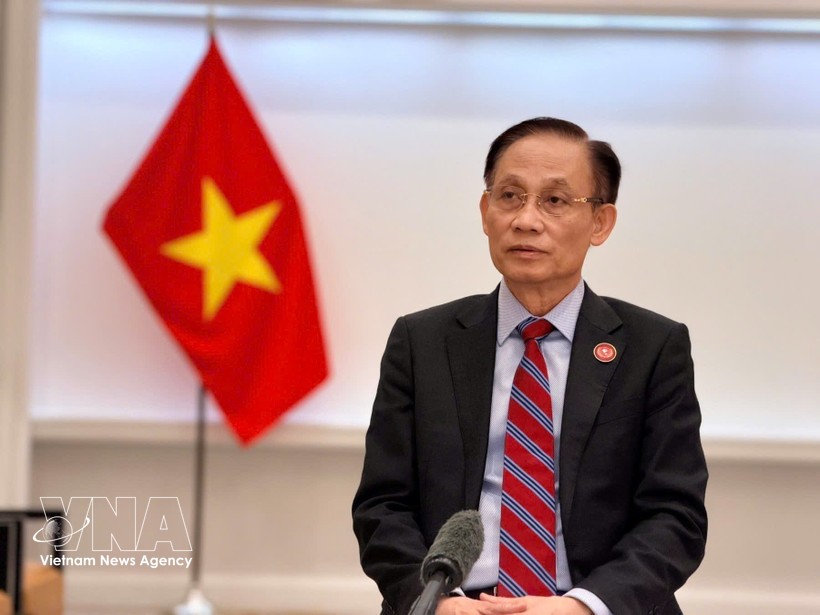 National
National
Party Chief’s US Trip Marks Milestone in High-level Multilateral Diplomacy: FM
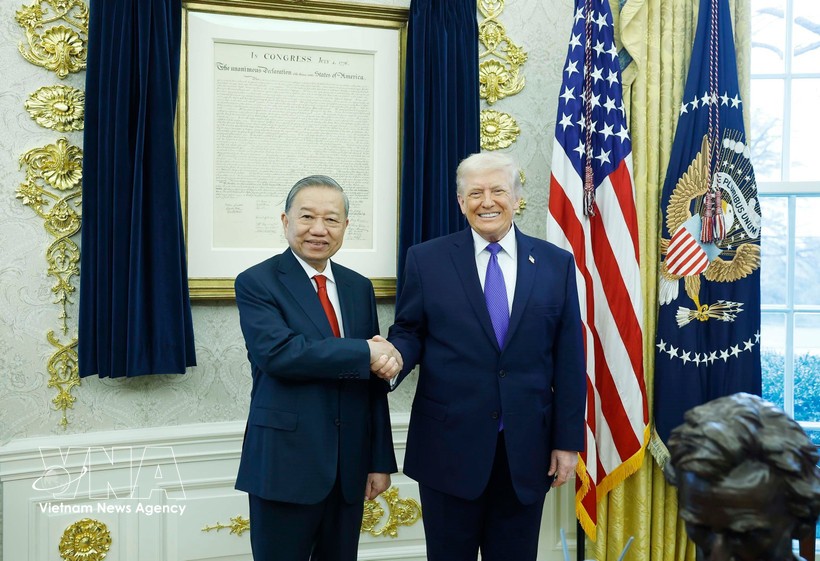 National
National
Party General Secretary To Lam Meets US President Donald Trump at White House
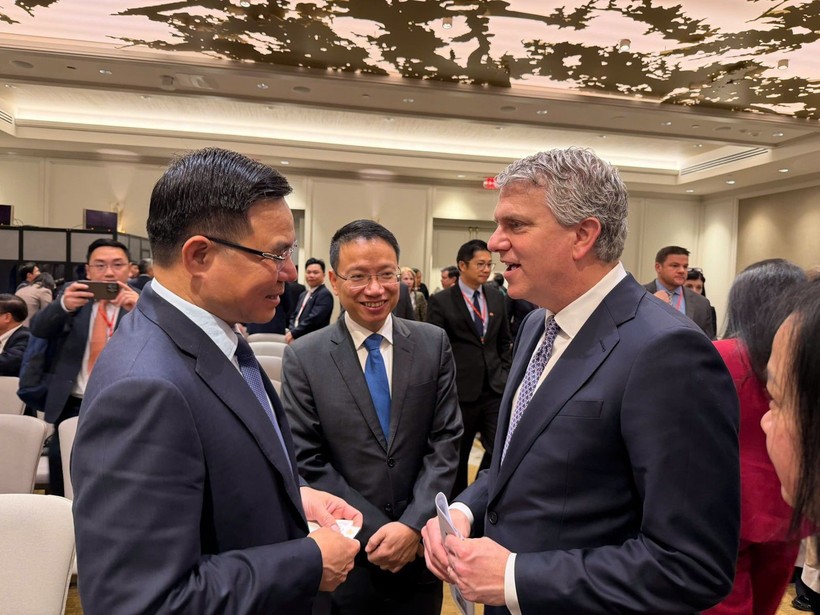 National
National
Vietnam News Today (Feb. 21): Vietnam, US Step Up Dialogue to Facilitate Trade Ties
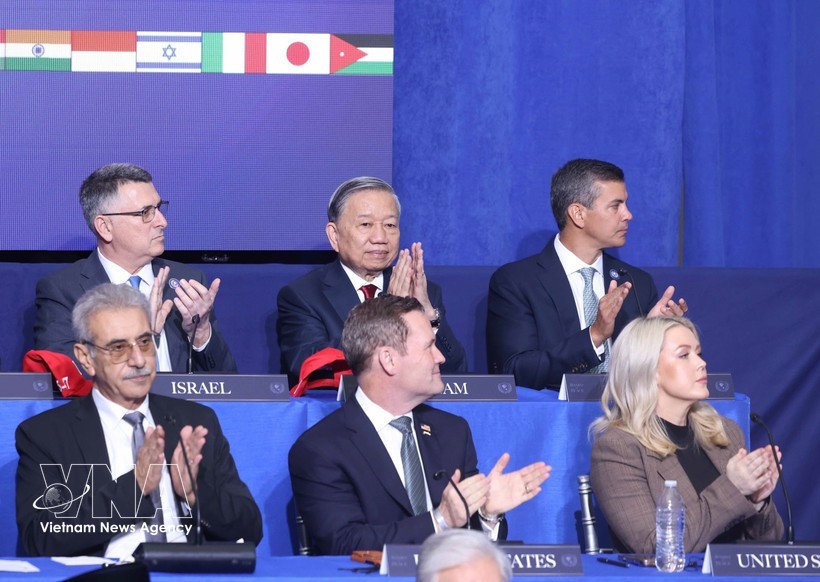 National
National
Party General Secretary To Lam Attends Inaugural Meeting of Gaza Board of Peace in US
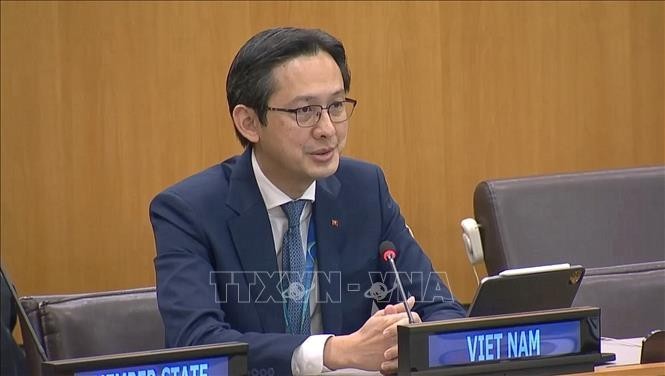 National
National
Vietnam Promotes Multilateral Dialogue on Nuclear Non-proliferation Ahead of the 2026 NPT Review Conference
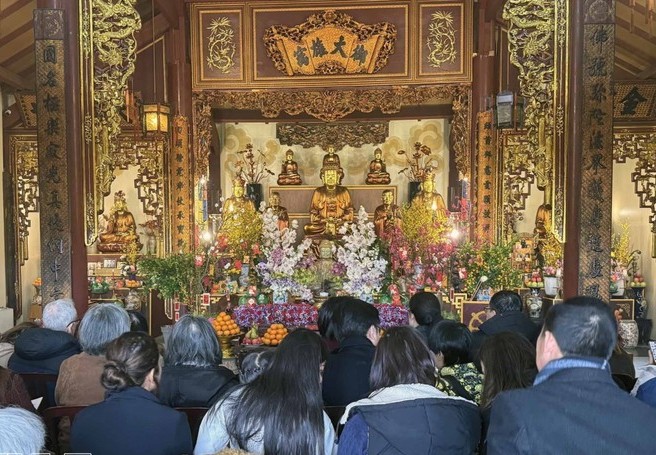 National
National
Vietnam News Today (Feb. 19): Vietnamese in France Cherish Traditional Practices During Tet
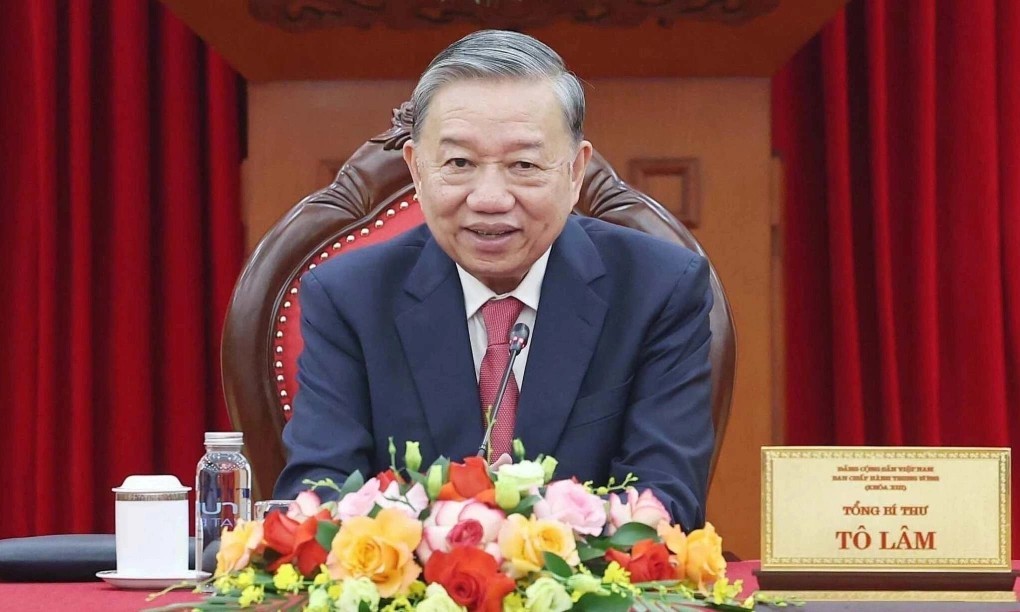 National
National

